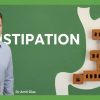Goa is abuzz with excitement as vintage bike and car owners, users, collectors and fans are decking […]

IMPACT OF COVID-19 ON COURTS!
May 15- May 21, 2021 May 14, 2021VIRTUAL: Everything from education to business conferences to even court cases has turned digital. Though a grand new court complex has been built in Porvorim it will not be used till the present wave of covid ends.
BY Adv. Vinayak D. Porob
Even at the best of times the judicial process in the country is a marathon with cases taking decades to be decided. Covid-19 has made it worse as physical sittings of the Court have been substituted by virtual hearing of cases. Judges, lawyers and witnesses, interact with at all levels through TEDx which is similar to Zoom. In fact, an image of the trousers of a former chief justice falling off went viral as he had forgotten to tighten his pant before switching on his TEDx.
COURT case disposals in India take years and the litigants in order to get justice have to be patient. Perseverance can only lead to justice in the country’s present judicial set up as in keeping up with the tradition of the Indian courts, continuous adjournments for one reason or the other, are granted which delays in disposal of cases.
Similarly various forums and appellate remedies available to challenge the final order passed by the lower courts, further causes delay in disposal of cases for years on end in the current judicial set up. Needless to say the current judicial set up requires drastic changes in order to reduce the time spent in courtrooms to decide a case.
The Supreme Court by issuing directions has tried its level best to an extent to reduce the pendency of cases. The point system introduced for the disposal of cases, wherein a presiding officer of a court on the basis of disposals, acquires points, is somehow reducing the pendency. However, however, with an adverse implication, as in an endeavor by the presiding officers to achieve minimum points in a month, or to gain maximum points, dispose off cases in such a haste — that the quality of reasoning given in the final judgment is adversely affected, which in turn has a negative effect on the justice delivery mechanism. I feel on a lighter note that points system for presiding officers and marks system for kids in school have a glaring similarity.
The corona virus covid-19 pandemic has not helped. This has been the reason since the last more than a year in causing delays in disposal of cases and in granting adjournments, by keeping up with the tradition of Indian courts, wherein granting adjournments on various grounds are fundamental to any court proceedings.
FINANCIALLY AFFECTED
THE advocates appearing in the courts are financially adversely affected due to the pandemic as hardly any court hearings are conducted. Most dates of hearings are uploaded on the E-Court Services Application. The junior advocates who are totally dependent on the income derived by attending court hearings are facing a greater deal of hardships as their daily income has suddenly stopped, since hearings are not conducted, and some of them are even struggling to meet their day- to-day expenses.
The system of virtual courts has been a failure to an extent in my opinion as in most of the areas in Goa there are Internet connectivity issues due to which there is a problem in transmission of video and audio, and as a result of which conducting virtual hearings of court cases becomes not only difficult but almost an impossible task.
As per the guidelines only urgent matters of bail and/or of temporary injunctions are taken up by the courts and that too virtually and hence considering the ratio of bails or injunctions filed, I think only 20 percent of the advocates get work as far as filing of injunction suits or bails are concerned. Injunctions and bails are usually argued by senior advocates and juniors in practice don’t get exposure to such matters as a result of which junior advocates are deprived of their normal day- to-day court hearings income due to the pandemic.
Since litigants and accused are not allowed to enter court rooms, most of the accused and litigants don’t turn up before their advocates to pay the fees and more so as no hearings are conducted, principally being wrong most of the advocates have not charged fees during this period of covid-19 pandemic.
The expenses incurred by an upcoming and a young advocate are not decreasing because of the pandemic, however are the same irrespective of situation of the pandemic. If an advocate has a young family to look after and in addition to the loan obtained for his office or house than during this pandemic he will be in crisis as due to lack of income he will not be in the position to either pay monthly installments of his loans, nor he will be able to sustain a living.
Circulars issued have reduced working hours of courts and also the strength of the court staff by virtue of which by working less, full salary is drawn by the judges and the court staff. However, for advocates who are officers of the court, neither the government nor the courts have any sympathy for as no facilities as far as loans or medi-claims are provided to advocates during this tough time. From the attitude of the government towards the advocates it appears that advocates are considered as the most unwanted elements of society, facing all sorts of criticism; however, when in need and/or in trouble the government approaches no other person than an advocate to bail them out of trouble.
PERCEPTION OF ADVOCATES
ALL the praises and good deeds are always credited to the doctors and other professionals and rightly so; however, it is sad that advocates are always perceived suspiciously by all sections of the society as even some banks do not grant loans to advocates. In spite of the fact that many advocates for very less remuneration conduct cases under the free legal aid program where virtually the advocates are paid nothing by the government to conduct a case under the free legal aid scheme, etc, the efforts of the advocates usually go unnoticed by totally ignoring the amount of social service and social work done by the advocates.
Even in private practice half of the clients do not pay fees; however, as part of the job, the advocates nobly litigate and conduct cases irrespective of the fact whether the fees are paid or not, which sadly the society or the government has failed to take a note of. The risk of covid-19 is too hard to run by and therefore the circulars limiting court working hours and prohibiting entry of litigants was the need of the hour during this pandemic considering the life and safety of the judges, staff, advocates and litigants.
Litigants and witnesses travelling distances and attending courts could have contributed in the spread of the virus and therefore rightly circulars were issued limiting court working hours and imposing other restrictions. However, while issuing such circulars the plight of the lawyers with respect to their financial needs was neither thought of nor considered. Though health and safety is utmost yet without income health and safety has no meaning if someone is dying out of starvation.
Therefore, considering the financial plight of advocates who have no pension or surety for their livelihood, the government ought to have introduced some scheme during this period of pandemic to financially accommodate advocates in desperate trouble due to lack of income.
(This is the personal opinion of the writer of this Article who is a practicing advocate from Mapusa.)















